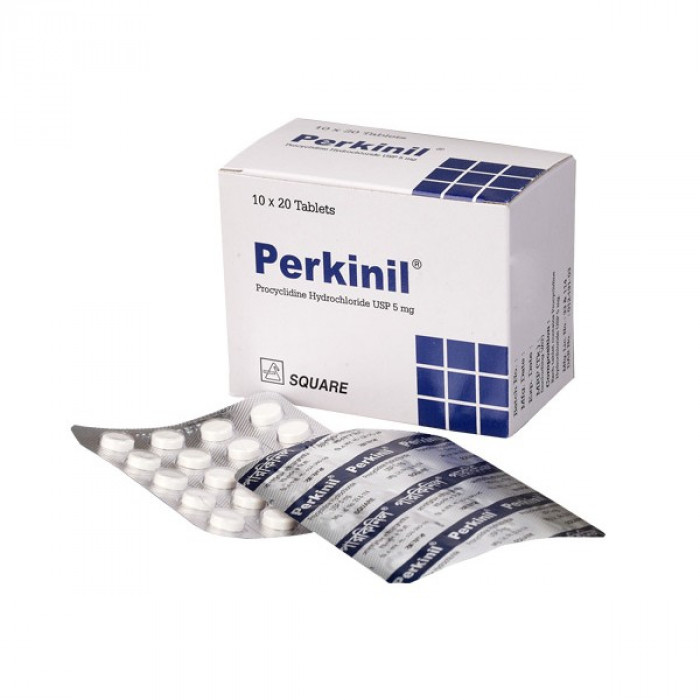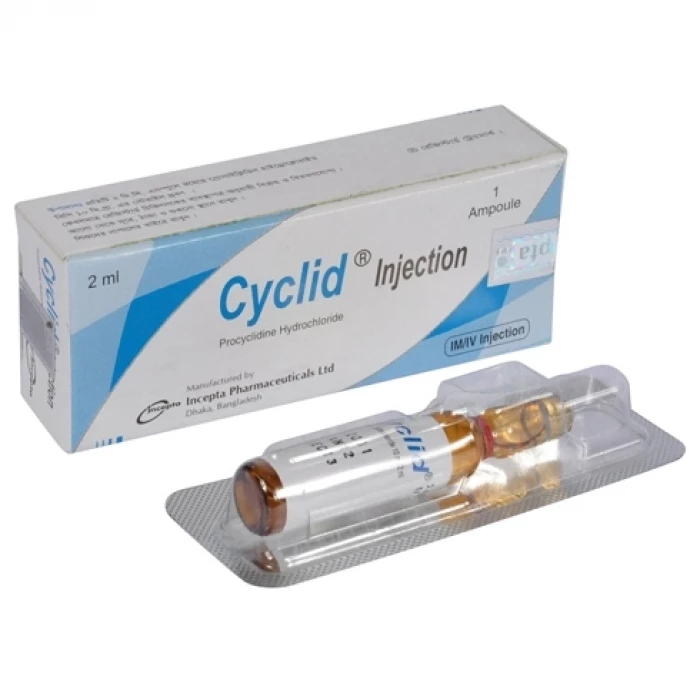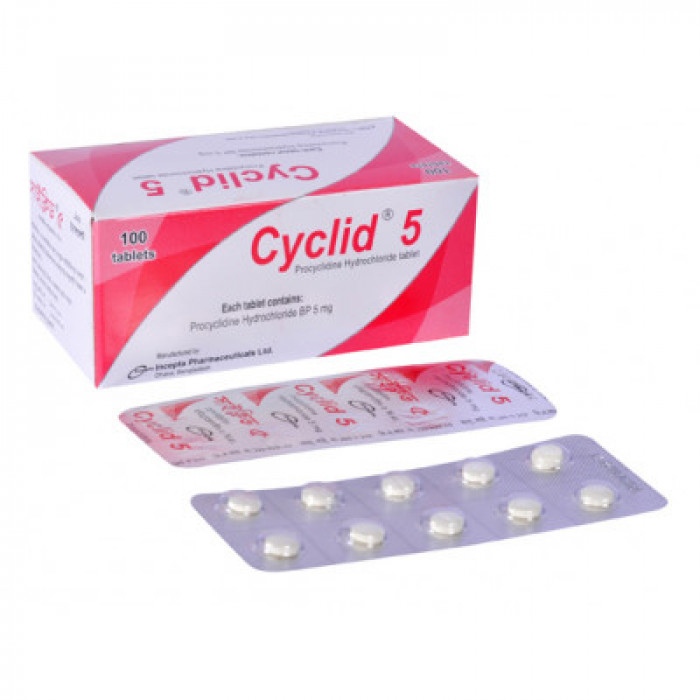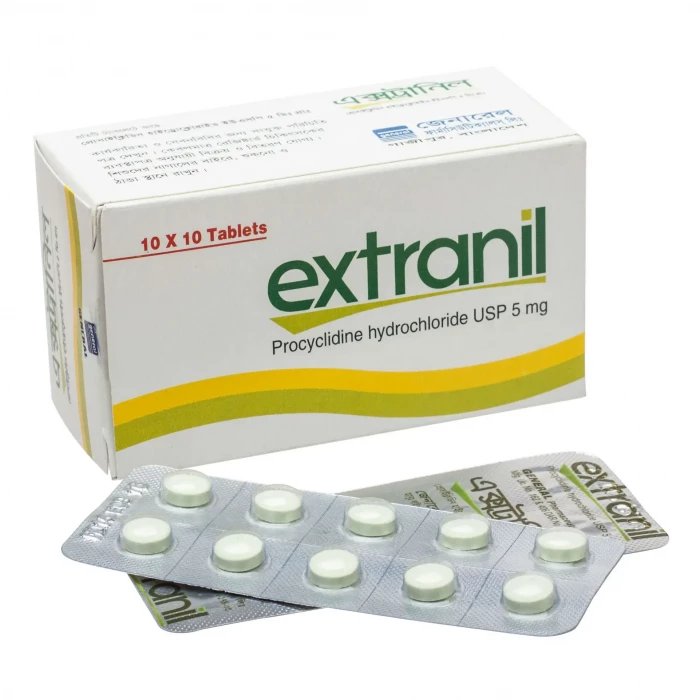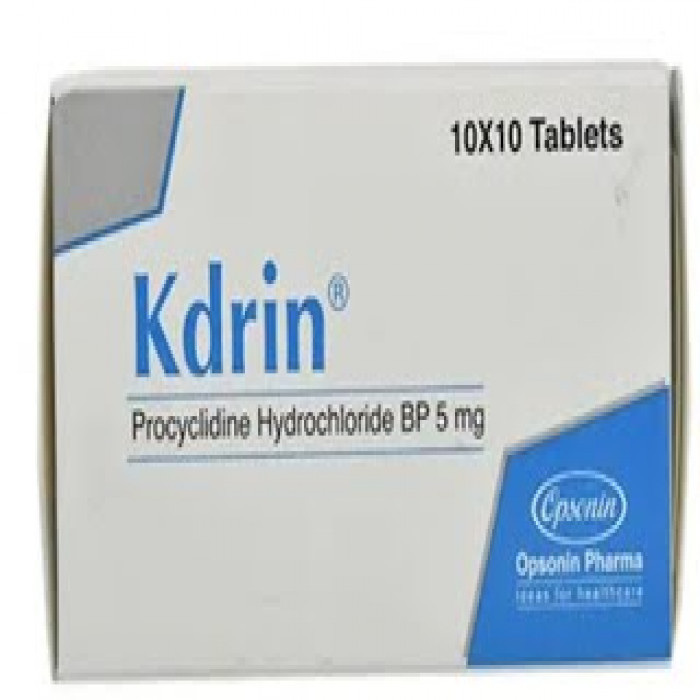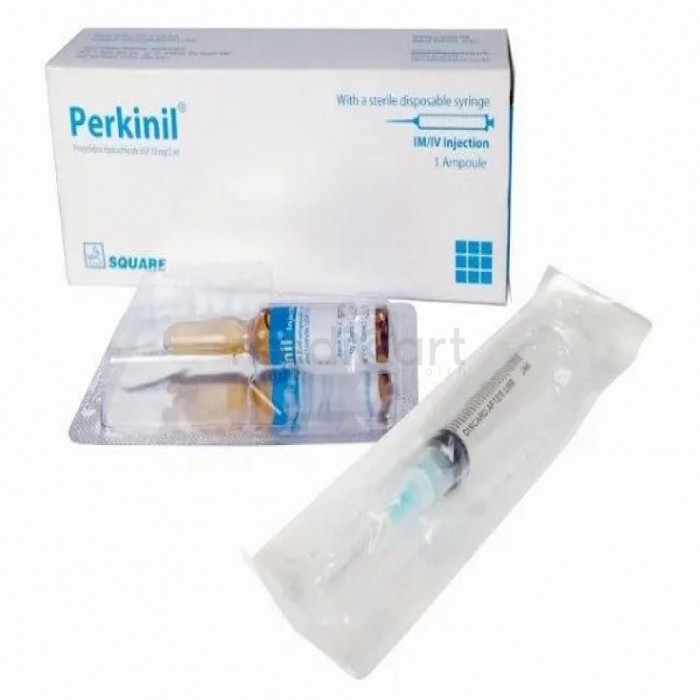
✔ 100% Authentic Product
👁️ Currently Viewing 2641
Kdrin Injection
Injection Manufacturer/Distributor: Opsonin Pharma Limited Generic Name: Procyclidine Hydrochloride 10mg/2 ml Injection
Discount
Price: ৳ 33
MRP:
৳
35
6%
Off

100% Genuine Products, Guaranteed

Safe & Secure Payments, Always

Fast, Secure & Efficient Delivery

Proper Packaging
 Cash on Delivery - All over Bangladesh
Cash on Delivery - All over Bangladesh Regular Delivery - 12-24 Hours, Dhaka City* Charge Tk.39-59
Regular Delivery - 12-24 Hours, Dhaka City* Charge Tk.39-59 Regular Delivery - 24-48 Hours, Other Cities* Charge Tk.99-110
Regular Delivery - 24-48 Hours, Other Cities* Charge Tk.99-110
 ফ্রি ডেলিভারিঃ - ৯৯৯ টাকা+ অর্ডারে, ঢাকা
শহরে
ফ্রি ডেলিভারিঃ - ৯৯৯ টাকা+ অর্ডারে, ঢাকা
শহরে ফ্রি ডেলিভারিঃ - ২৯৯৯ টাকা+ অর্ডারে, ঢাকার
বাহিরে
ফ্রি ডেলিভারিঃ - ২৯৯৯ টাকা+ অর্ডারে, ঢাকার
বাহিরে
100% Genuine Products, Guaranteed
Safe & Secure Payments, Always
Fast, Secure & Efficient Delivery
Proper Packaging
 Cash on Delivery - All over Bangladesh
Cash on Delivery - All over Bangladesh Regular Delivery - 12-24 Hours, Dhaka City* Charge Tk.39-59
Regular Delivery - 12-24 Hours, Dhaka City* Charge Tk.39-59 Regular Delivery - 24-48 Hours, Other Cities* Charge Tk.99-110
Regular Delivery - 24-48 Hours, Other Cities* Charge Tk.99-110 ফ্রি ডেলিভারিঃ - ৯৯৯ টাকা+ অর্ডারে, ঢাকা
শহরে
ফ্রি ডেলিভারিঃ - ৯৯৯ টাকা+ অর্ডারে, ঢাকা
শহরে ফ্রি ডেলিভারিঃ - ২৯৯৯ টাকা+ অর্ডারে, ঢাকার
বাহিরে
ফ্রি ডেলিভারিঃ - ২৯৯৯ টাকা+ অর্ডারে, ঢাকার
বাহিরে
✅ Description:
Kdrin is a prescription medicine used in the treatment of Parkinson's disease and drug induced abnormal movements. It helps by improving muscle control and reducing the stiffness of the muscle, so that they can move easily. Kdrin should be taken with food as it reduces the side effects with this medicine. It should be taken at the same time each day, this helps to maintain a consistent level of medicine in the body. Take this medicine in the dose and duration as advised by your doctor and if you have missed a dose, take it as soon as you remember. Do not skip any doses and finish the full course of treatment even if you feel better. It is important that this medication is not stopped suddenly without talking to the doctor as it may result in a worsening of symptoms. Some common side effects of this medicine include nausea, vomiting, constipation, and blurred vision. It even causes dizziness and sleepiness, so do not drive or do anything that requires mental focus until you know how this medicine affects you. Dry mouth may occur commonly while using this medicine so, try to do frequent mouth rinses, maintain good oral hygiene, and increase water intake. Avoid wearing contact lenses as it may cause dry eyes as well. It is important to inform your doctor if you suffer from glaucoma or have trouble passing urine. Before using Kdrin, you should tell your doctor if you've ever had heart problems, problems with passing urine, liver or kidney disease. It may also affect, or be affected by, some other drugs you are using so let your doctor know what these are to be safe. Pregnant or breastfeeding mothers should consult their doctor before starting treatment with this medicine.
Uses of Kdrin
- Parkinsons disease
Side effects of Kdrin
- Dryness in mouth
- Nausea
- Vomiting
- Constipation
- Blurred vision
- Dizziness
- Lightheadedness
- Dilatation of pupil
- Upper abdominal pain
- Urinary retention
How to use Kdrin
Take this medicine in the dose and duration as advised by your doctor. Swallow it as a whole. Do not chew, crush or break it. Kdrin is to be taken with food.
How Kdrin works
Kdrin is a muscle relaxing medication. It works by decreasing the activity of excess acetylcholine in the brain. This improves muscle control and reduces stiffness. It helps patients with Parkinson's disease by improving muscle control and reducing stiffness so that they can move more naturally. It is also used to treat movement disorder (restlessness, involuntary movements or muscle spasm ) which can be caused by certain drugs.

Quick Tips
Kdrin helps treat Parkinson's disease and drug-induced abnormal movements.
Dry mouth may occur as a side effect. Frequent mouth rinses, good oral hygiene, increased water intake and sugarless candy may help.
It may cause dry eyes. Avoid wearing contact lenses and inform your doctor if it bothers you.
It may cause dizziness and sleepiness. Do not drive or do anything requiring concentration until you know how it affects you.
Inform your doctor if you suffer from glaucoma or if you have trouble passing urine.
Do not stop taking Kdrin without talking to your doctor first as that may cause worsening of symptoms.
Monitoring of intraocular pressure is required while taking this medicine, as an increase in eye pressure may cause blurry vision.
You may be asked for regular monitoring of hypotension, kidney, liver, and cardiac disorder while taking this medicine.

Brief Description
Indication
Parkinsonism, Drug-induced extrapyramidal syndrome
Adult Dose
Oral Parkinsonism and drug-induced extrapyramidal syndrome Adult: As hydrochloride: Initially, 2.5 mg tid, increased gradually by 2.5-5 mg every 2-3 days if required. Maintenance: 10-30 mg/day in 3-4 divided doses. Up to 60 mg daily may be required in some cases. Parenteral Parkinsonism and drug-induced extrapyramidal syndrome Adult: Emergency cases: IV admin: 5-10 mg, higher doses may be needed; IM admin: 5-10 mg as a single dose, may repeat after 20 minutes if needed, to a max of 20 mg daily. Elderly: Lower doses are required.
Child Dose
Oral Dystonia in children Child: 7-12 yr: 1.25 mg tid; 12-18 yr: 2.5 mg tid. For emergency cases, a single dose may be given via IM or IV inj: <2 yr: 0.5-2 mg; 2-10 yr: 2-5 mg and 10-18 yr: 5-10 mg.
Contraindication
Urinary outflow obstruction, prostatic hyperthrophy, narrow-angle glaucoma, paralytic ileus and pyloric stenosis.
Mode of Action
Procyclidine is a tertiary amine antimuscarinic which acts by blocking excess acetylcholine at cerebral synapses. It also exhibits direct antispasmodic effect on smooth muscle.
Precaution
Patient w/ mental disorders, CV disease (e.g. tachycardia, cardiac arrhythmias, hypertention, hypotension). Hepatic and renal impairment. Avoid abrupt withdrawal. Elderly. Pregnancy and lactation. Patient Counselling This drug may cause blurred vision, dizziness, confusion or disorientation, if affected, do not drive or operate machinery. Monitoring Parameters Monitor symptoms of extrapyramydal syndrome or Parkinson's disease, pulse, anticholinergic effects (e.g. CNS, bowel and bladder function).
Side Effect
Dry mouth, mydriasis, blurred vision, lightheadedness, giddiness, disorientation, GI effects (e.g. nausea, vomiting, epigastric distress, constipation), allergic reaction (e.g. rash), muscular weakness; vertigo, confusion, hallucinations at high doses; tremor, acute suppurative parotitis.
Interaction
Increased plasma concentrations w/ paroxetine. Enhanced anticholinergic action w/ MAOIs and other anticholinergic drugs. Reduced therapeutic effect w/ cholinergic drugs. May antagonise the effect of parasympathomimetic agents. May reduce the absorption and therapeutic effect of sublingual or buccal nitrate tab. May reduce the efficacy of levodopa. May antagonise the GI effects of cisapride, domperidone and metoclopramide. May potentiate the vagolytic effects of quinidine. May reduce the absorption of ketoconazole.
⚠️Disclaimer:
At ePharma, we’re committed to providing accurate and accessible health information. However, all content is intended for informational purposes only and should not replace medical advice from a qualified physician. Please consult your healthcare provider for personalized guidance. We aim to support, not substitute, the doctor-patient relationship.




